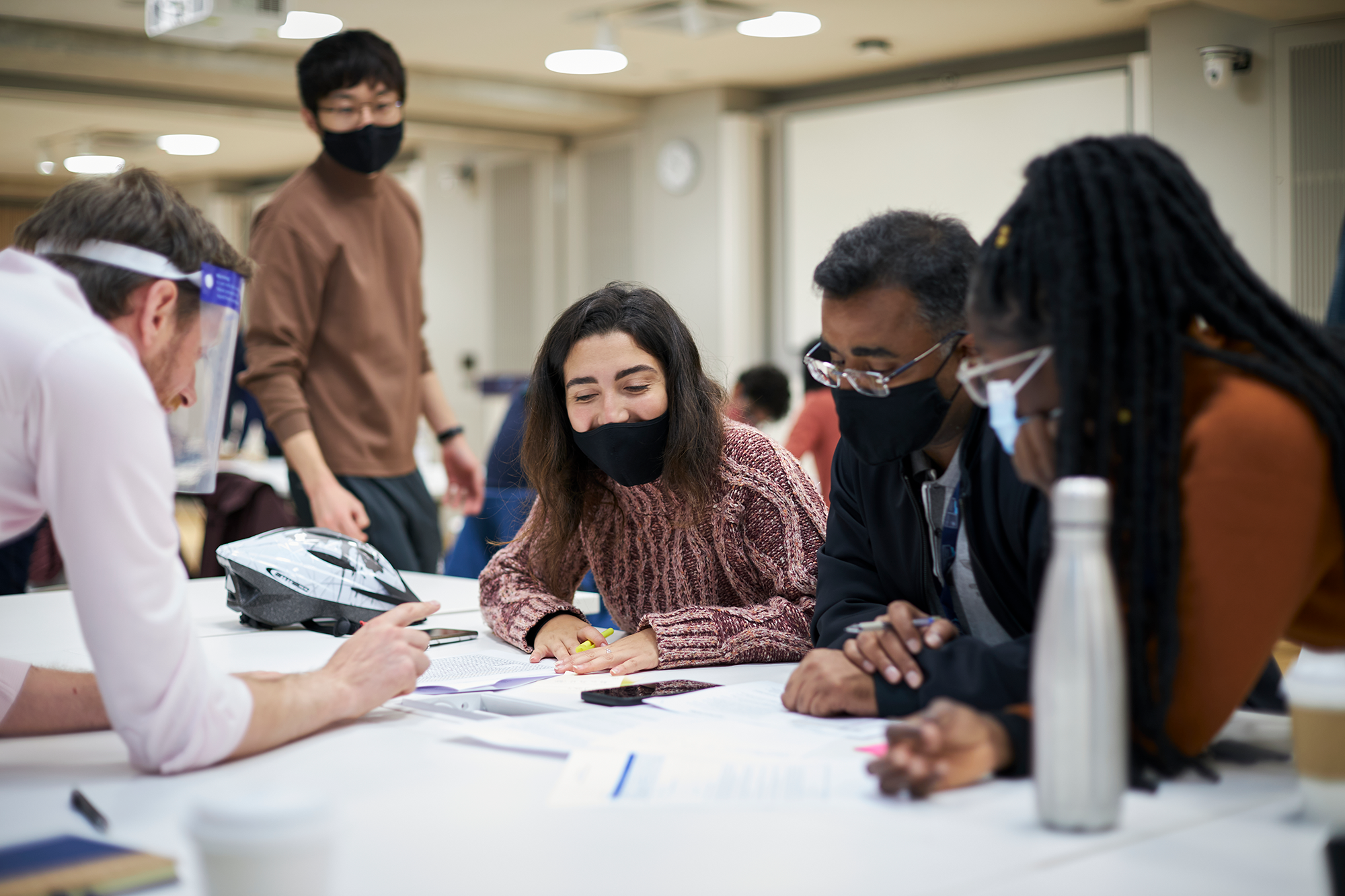Reflections on the MPP induction 2021
A 2021 MPP student shares their experience of the two-week induction programme at the School.

What do our MPP students get out of their two-week induction? David Morrow from the MPP class of 2021 shares his reflections.
“How many career breaks have you actually had, Dave?” a friend asked me wryly at a wedding last month. Technically, this isn’t a career break and I’m currently on a zero-hours contract for the year. To be fair though, in the span of an eight-year professional career I have dabbled in career breaks, unpaid leave, double-jobbing, and a permanent three-day week. “Je ne regrette rien”, however, as they’ve always served to expand my horizons and learn things I otherwise wouldn’t have.
Three weeks ago, I started a one-year taught Master of Public Policy (MPP) at the Blavatnik School of Government, University of Oxford. The MPP is designed for those who want to be professionally involved in the process of making government policy, be it as politicians, civil servants, lobbyists, or other. The MPP modules cover three main areas: teaching how to digest information from experts regarding policy (e.g. economics, law, politics), challenging students’ values and practising how to make good policy decisions in real time (philosophy, case studies), and professional skills modules to help students become more effective in the work place. The MPP is not a traditional academic masters, in that the focus is on working collaboratively with colleagues in an applied setting rather than focusing on lengthy reading lists and theory.
Why am I doing it? For two reasons, primarily. The first is that I want to continue to be involved in politics for the rest of my life, professionally or otherwise. I subscribe to the School’s motto of pursuing a world “Better led, better served and better governed”, and want to take what I learn on the MPP and contribute to better policies for Northern Ireland. I’m able to do the course because of a hugely generous Political Leadership Scholarship from the School, having been identified as someone with ambitions to stand for public office within the next five years.
Secondly, because why wouldn’t I do it? Why wouldn’t I take the opportunity, while I still have a relative amount of flexibility in my personal life (thanks in no small part to a very supportive partner), to go to a renowned institution, to meet interesting people, to reap the benefits of university life, and to study something I’m deeply interested in and passionate about? I could find very few reasonable answers to these questions, and therefore I’ve embraced my good fortune and here I am.
We’ve just completed two weeks of MPP induction, with a daily nine-to-five schedule of lectures, introductions to our various modules, team-building and case-study activities. The content of the course looks brilliant, and the academic staff at the School have been hugely welcoming and impressive. The real benefit of the course thus far though has been meeting my 140 classmates.
The MPP students genuinely come from all corners of the world. The years of professional experience range from 20+ to zero, with an average of about seven, in a wide variety of career backgrounds but with a shared goal of being involved in public policy. Absolutely everyone is keen to meet and get to know each other. This is great, but I have had to acknowledge that I can’t possibly meet 140 people in the first two weeks, and deal with the crippling anxiety of not being sure whether I’ve introduced myself to somebody already, and if I have, whether I’ll remember their name correctly. But it’s all part of the learning.
In terms of the chat, it certainly isn’t always public policy at dawn. It’s been getting to know people, hearing about where they come from, and where they want to go. The most interesting bits I’ve found have been people’s different experiences which shed a little light on my own: be it the classmate from Mumbai who still calls her city by the old colonial name of Bombay because the name Mumbai is seen as specifically linked to just one ethnic group in the city, which was a good reminder that the politicisation of place names (Derry/Londonderry) is not a uniquely Northern Irish phenomenon. Or my American friend telling me of the baffled look she received when she asked the building safety manager whether in addition to fire drills they did lone shooter drills, something that I did not know were commonplace in the US. And when I heard that protests last year in Colombia meant that people couldn’t go to work for three or four months, and I realised that the limited civil disobedience I’d seen in my life totally paled in comparison. These are the small, everyday eye openers that I get to enjoy as part of the MPP.
As the modules start begin, I hope to get the best out of the MPP, and Oxford life in general, including a foray into rowing (initial thoughts: harder than it looks, especially when you have weak core muscles and poor flexibility, but I persist!).
David Morrow is an MPP student from the class of 2021.
Apply for 2022-23 entry to the MPP by 7 January 2022.

